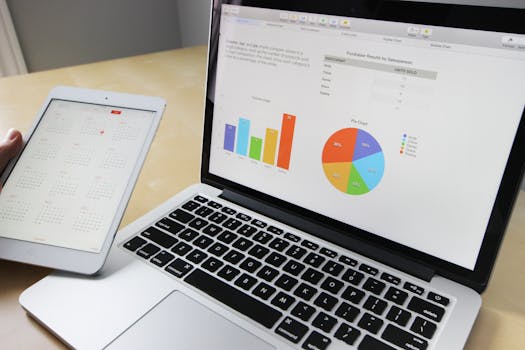Understanding taxes can be daunting, especially for beginners who are just starting to navigate the complex world of personal finance. This article aims to break down the fundamentals of taxes, what every beginner needs to know about filing, deductions, and more. Whether you’re a student, a new employee, or someone looking to get a grasp of your financial responsibilities, this guide is for you.
What Are Taxes and Why Do We Pay Them?
Taxes are mandatory financial charges imposed by the government on individuals and businesses. They are used to fund various public services, including education, healthcare, infrastructure, and national defense. Understanding why we pay taxes is crucial for grasping the bigger picture of civic duty and government funding.
Types of Taxes You Should Know
There are several different types of taxes that you may encounter as a beginner:
- Income Tax: This is a tax on the money you earn from your job, investments, or other sources.
- Sales Tax: A tax added to the price of goods and services at the point of sale.
- Property Tax: A tax based on the value of real estate you own.
- Capital Gains Tax: A tax on the profit from the sale of an asset.
- Payroll Tax: A tax that funds Social Security and Medicare, deducted directly from employee wages.
Understanding the Tax Bracket System
In many countries, income tax is based on a progressive tax system, meaning that the rate increases as your income increases. This system often consists of different tax brackets where portions of your income are taxed at varying rates.
- Lower Income Bracket: This typically includes lower rates for individuals with minimal earnings.
- Middle Income Bracket: This includes moderate rates for those within a certain income range.
- Higher Income Bracket: This usually imposes higher tax rates on those who earn above a certain threshold.
The Process of Filing Taxes
Filing your taxes is an annual responsibility that can seem overwhelming. Here’s a simplified breakdown of the process:
- Gather Your Documents: Collect all necessary documents such as W-2s, 1099s, and other income statements.
- Select a Filing Method: You can file your taxes manually using paper forms, use tax software, or hire a tax professional.
- Fill Out Your Tax Return: Report your income, calculate deductions, and determine the taxes owed based on your bracket.
- Submit Your Tax Return: Ensure that you file your return by the deadline, typically April 15 in the U.S.
- Pay Any Taxes Owed: If you owe money, make sure to pay by the deadline to avoid penalties.
What Are Tax Deductions?
One of the most important concepts for beginners to grasp is tax deductions. Deductions reduce your taxable income, which can lower your overall tax bill. Here are common deductions you should be aware of:
- Standard Deduction: A fixed amount that you can deduct from your income without having to itemize.
- Itemized Deductions: These are specific expenses you can claim, such as mortgage interest, state taxes, and medical expenses.
- Educational Expenses: Costs related to higher education may qualify for deductions or credits.
- Charitable Contributions: Donations to qualified charities can reduce your taxable income.
Common Tax Credits
In addition to deductions, tax credits can also lower your tax bill. Unlike deductions, which reduce the amount of income that is subject to tax, credits reduce the amount of tax you owe directly. Some common credits include:
- Earned Income Tax Credit (EITC): Designed for low to moderate-income workers, this credit can significantly reduce your tax bill.
- Child Tax Credit: A credit available to taxpayers with dependent children.
- American Opportunity Tax Credit: This credit helps cover education costs for college students.
- Lifetime Learning Credit: Available for those taking courses to acquire or improve job skills.
How to Keep Records for Tax Filing
Good record-keeping is essential for an accurate tax filing process. Here are some tips for maintaining your financial documents:
- Organize Receipts: Keep receipts for deductible expenses organized throughout the year.
- Use Technology: Consider using software or apps designed to track expenses and income.
- Maintain Copies: Always keep copies of your tax returns and supporting documents for at least three years.
Common Mistakes to Avoid When Filing Taxes
Even beginners can make mistakes when filing their taxes. Here are some common errors to watch out for:
- Filing Late: Be aware of deadlines to avoid penalties.
- Incorrect Information: Double-check all figures and personal information like your Social Security number.
- Missing Deductions: Ensure you’re taking advantage of all eligible deductions and credits.
- Not Reviewing Tax Forms: Always review your tax return before submitting to catch any errors.
Using Tax Preparation Software
For those who feel uncomfortable filing taxes manually, tax preparation software can simplify the process. Here are some advantages:
- User-Friendly Interface: Most tax software is designed to be intuitive and guides you through each step.
- Automatic Calculations: Software ensures accurate calculations, reducing risks of mathematical errors.
- Maximized Deductions: Many programs help you find and claim eligible deductions and credits you might miss.
What to Expect After Filing Your Taxes
Once you’ve filed your taxes, you can generally expect the following:
- Processing Time: The IRS typically processes returns within 21 days if filed electronically.
- Refunds: If you overpaid, you may receive a tax refund, which can be direct deposited into your bank account.
- Correspondence: Be prepared to receive any correspondence from the IRS in case they require further information.
Resources for Beginners
As a beginner, there are many resources available to help you understand taxes better:
- IRS Website: The IRS provides extensive resources, including guides, FAQs, and downloadable forms.
- Local Tax Assistance Programs: Many communities offer free tax assistance, especially for low-income individuals.
- Online Forums: Websites like Reddit or tax-specific forums can provide peer advice and insights.
Final Thoughts on Understanding Taxes
Understanding taxes is a vital skill that every adult should cultivate. By learning the basics of taxes, deductions, and the filing process, you can take control of your financial future and minimize your tax liability. Whether you choose to navigate this process yourself or seek assistance, being informed is your best tool in understanding and fulfilling your tax obligations.
Don’t forget, tax laws can change frequently, so it’s important to stay updated on the latest information to ensure compliance and maximize your financial benefits.
By embracing this knowledge and taking proactive steps, you can make tax season less daunting and even a little more rewarding.



